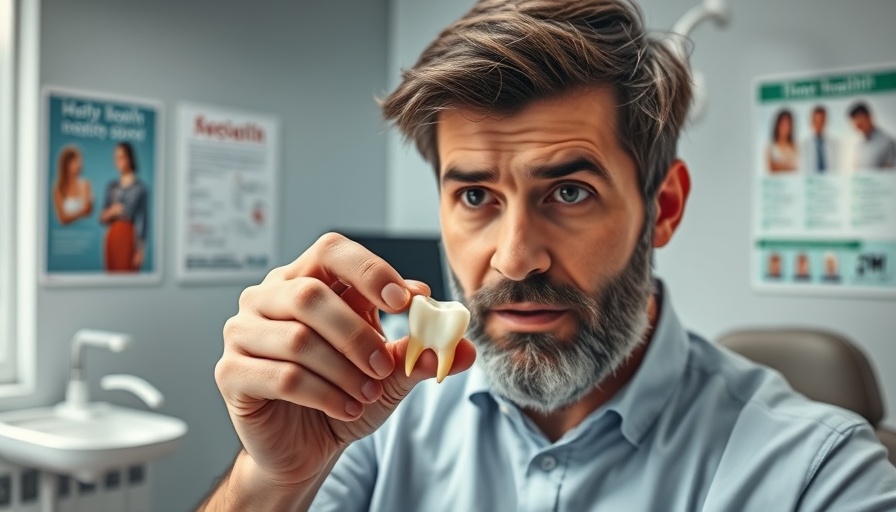
Understanding the Urgency: Why Fast Action Matters When a Tooth Is Knocked Out
Did you know that acting within 30 minutes of knocking out a tooth can significantly increase your chances of saving it? Research indicates that the sooner you respond, the higher the likelihood your dental health can be preserved. Whether it stems from sports, an accidental fall, or a simple mishap, knowing what to do when your tooth goes flying can be the difference between a natural smile and lengthy dental treatments.
When you experience a dental emergency, panic can set in quickly. However, remaining calm and knowing the immediate steps to take can save much than just the affected tooth—it can protect your overall oral health, minimizing the risk of complications that lead to costly and time-consuming fixes down the line.
Act Fast: What to Do Immediately After a Tooth is Knocked Out
Upon knocking out a tooth, follow these essential steps:
- Retrieve the Tooth: If the tooth fell out, pick it up by the crown (the top part) and avoid touching the root, which could cause damage.
- Clean It Gently: Rinse the tooth lightly in milk or saline solution. Never scrub it or use soap as these can harm the delicate tissue on the root.
- Reposition If Possible: If the person is an adult and the tooth allows, try to gently place the tooth back into its socket. Bite down on a clean cloth or gauze to hold it steady until you reach the dentist.
- Keep It Moist: If reimplantation isn’t possible, keep the tooth moist. The best option is to store it in a glass of milk or a saline solution. Avoid using plain water as it can damage the root.
- Seek Professional Help: Get to a dentist within 30 minutes. The quicker you act, the better your chances of salvaging the tooth.
Handling Baby Teeth versus Adult Teeth: Key Differences to Remember
In the case of children, a knocked-out baby tooth is often less distressing from a dental health perspective. Typically, these teeth are meant to fall out as part of the natural development process. However, parents should still ensure they follow proper steps to mitigate the risk of infection and to guide the child through the emotional experience. In contrast, losing an adult tooth requires immediate attention, as it may have lasting ramifications for dental structure and health.
Strategies to Protect Your Teeth in Emergencies
In addition to knowing how to respond, it’s equally vital to protect your teeth proactively. Consider these expert-recommended strategies:
- Wear a Mouthguard: Especially important for children and athletes, a mouthguard can dramatically reduce the risk of tooth avulsion during sports or physical activity.
- Educate About Risks: Make sure children are aware of how to avoid situations that can lead to tooth loss by promoting safe behaviors during play.
- Routine Dental Visits: Regular check-ups can catch potential weaknesses in teeth, reducing the likelihood of removal due to damage.
Restorative Options: What If the Tooth Can't Be Saved?
If you find yourself in the unfortunate situation where the tooth cannot be salvaged, restorative options are available. Your dentist may discuss alternatives like dental implants or bridges that can restore functionality and aesthetics. Gaining knowledge about these procedures can help alleviate any worries you may have about the future of your smile.
Final Thoughts: Protecting Your Smile
Understanding what to do in emergencies like a knocked-out tooth could save your smile. By acting swiftly, you not only enhance the chances of saving your tooth, but you also ensure a smoother path ahead with your dental health. With the right knowledge and preparedness, you can navigate these unexpected situations with confidence.
Equipped with this guide, now is the time to take action! Discuss preventive strategies with your family and schedule routine dental check-ups to ensure your oral health is a priority. A little preparation can lead to big smiles!
 Add Row
Add Row  Add
Add 




Write A Comment